Montenegrin Capacity Building for Approximation of EU Legislation
Supported by: SlovakAid, a Slovak Ministry of Foreign Affairs' Programme
Study tour: "Scope and Competences of Central State Authorities in the Frame of the Integration Process"
Period: March 24th -29th, 2013
Venue: Bratislava, Slovak Republic
Interpretation: Slovak - Montenegrin
The study tour "Scope and Competences of Central State Authorities in the Framework of the Integration Process" took place in Bratislava, Slovak Republic, on March 24-29, 2013. The study tour was organised within the joint project of NISPAcee and HRMA (Human Resources Management Authority), Montenegro.
The project is supported by SlovakAid, a Slovak Ministry of Foreign Affairs' Programme.
For the study tour, 12 participants were selected, 9 of whom took part. They represented various Montenegrin central state institutions, responsible for preparing Montenegro for EU integration. The Montenegrin participants represented both the legislative and executive parts of the state power and came from the Montenegrin Parliament, Governmental Office, Ministry of Foreign Affairs and European Integration, Ministry of Justice and HRMA. They came to Slovakia with expectations of obtaining important information and recommendations regarding organisational, technical and methodological support of the accession process in the Slovak partner institutions and about the possibility of their utilisation in Montenegro.
The study tour was divided into two main parts - study visits of the relevant institutions and a seminar.
Within the study tour, the participants visited the National Council of the Slovak Republic, Government Office of the Slovak Republic, Ministry of Justice of the Slovak Republic, Ministry of Foreign Affairs of the Slovak Republic and the Ministry of Environment of the Slovak Republic.
During the discussions in the various institutions, the Montenegrin representatives were interested mainly in the following information:
- At what level of the legislative process is the harmony of the draft law with the acquis communautaire considered?
- Which central state institution is responsible for the full harmonisation of each draft law?
- The extent of the European sources of law which need to be translated during the accession process.
- The manner in which the regulations are transposed, with direct effect, into the law system of the associated state and what happened to these transposed provisions after accession.
- The negotiations procedure during the accession period.
- The official and authorised electronic version of the Slovak Collection of Laws.
- The system of denomination of the judges.
- The functions of Parliament, mainly the Committee for European Accession, in the integration process.
- The governmental media campaign for ensuring a public pro-European tendency.
- Slovak technical norms.
Study visit: Government Office of Slovak Republic
Study visit: Ministry of Justice of Slovak Republic
Study visit: Ministry of Foreign Affairs of the Slovak Republic
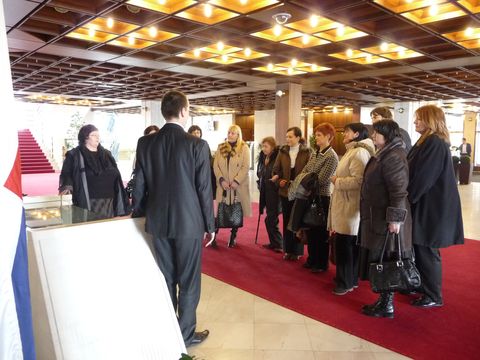
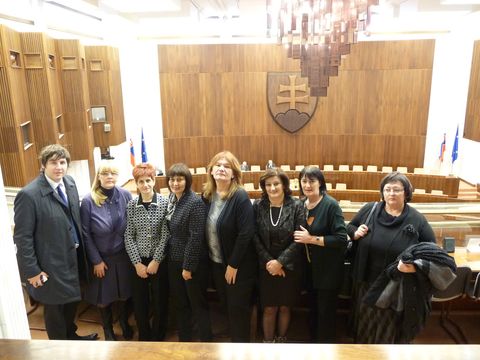
Study visit: National council of Slovak Republic
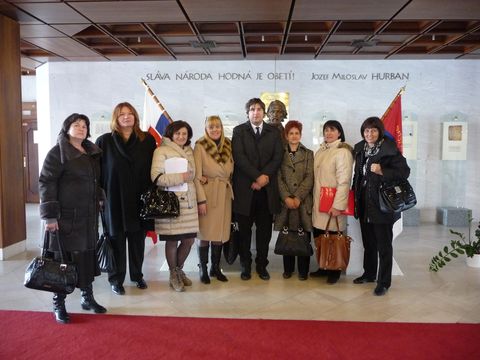
Study visit: National council of Slovak Republic
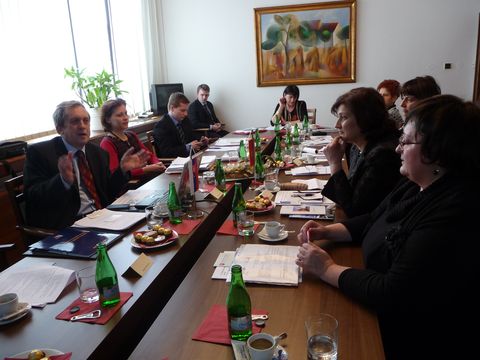
The seminar was opened by Ludmila Gajdosova, NISPAcee Executive Director and Project Expert, Svetlana Vukovic, HRMA Director, and Jana Oremova, Leading Project Expert. The main focus was on the introduction of the set of 12 policy papers developed within the project by the team of Slovak experts.
The Slovak Experts Jana Oremova, Boris Balog and Monika Michalova presented the following policy papers:
- National constitution and its changes within the European Union.
- Preparation of the national implementation programmes related to the European Union.
- Constitutional Court and its competencies within the European Union.
- Ministry of Foreign Affairs - its organisational structure and its competencies within the European Union during the accession period.
- Governmental Office - its organisational structure and its competencies within the European Union during the accession period.
- Special central state body for controlling the level of implementation of the national law with the acquis – its structure and competencies.
- National Parliament - its organisational structure and its competencies within the European Union during the accession period.
- The main relationship between the Government and Parliament within the European Union.
- Approximation´s governmental decrees as the special source of law for implementation of the acquis.
- The Statement of Compatibility and Tables of Concordance – possibilities of how to ensure the compatibility of the legal sources within the European Union.
- Regulatory impact assessment.
- Motivation of state employees during the accession period.
The topical areas of policy papers were identified by the Montenegrin participants during the seminar in November 2012, based on the actual needs in their country. All policy papers were presented during the study tour and discussed among the experts and participants. Based on the discussions, the expert team agreed the necessity to update and/or to amend some selected parts within the next weeks in order to finalise the policy papers before the upcoming conference (April 23, 2013).
During the seminar, a presentation was given on the role of the media and third sector during the integration process in Slovakia. This topic was additionally requested by the Montenegrin participants during the seminar in November, 2012 as it is also an actuality in their country.
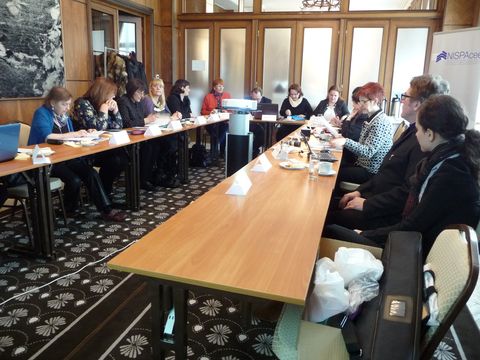

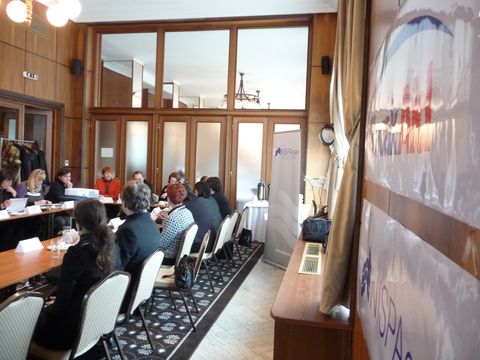
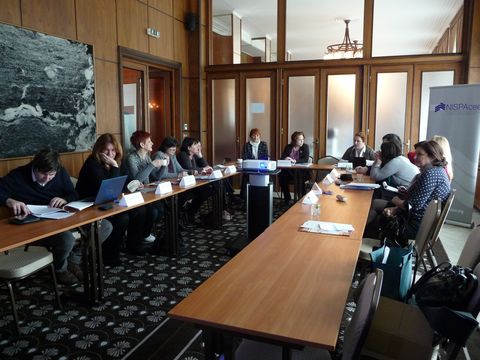
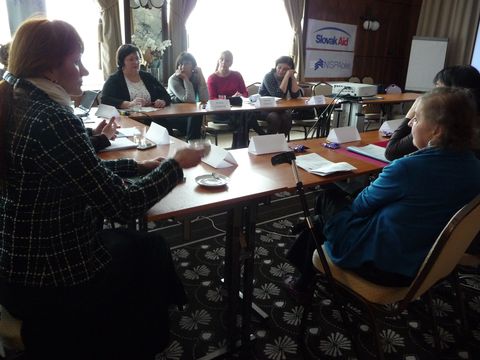
The study tour to the selected central state institutions, together with the aforementioned presentation and discussion about the policy papers have given the participants a compact scope of expert information about the pre-integration period in Slovakia from the point of view of the division of constitutional competencies, methods of approximation of law and practical experiences from the negotiation process. The expert representatives of the institutions visited also gave the Montenegrin delegation their personal experiences from this period and shared with them important experiences arising from the negotiation process.




 Price:
Price: 








